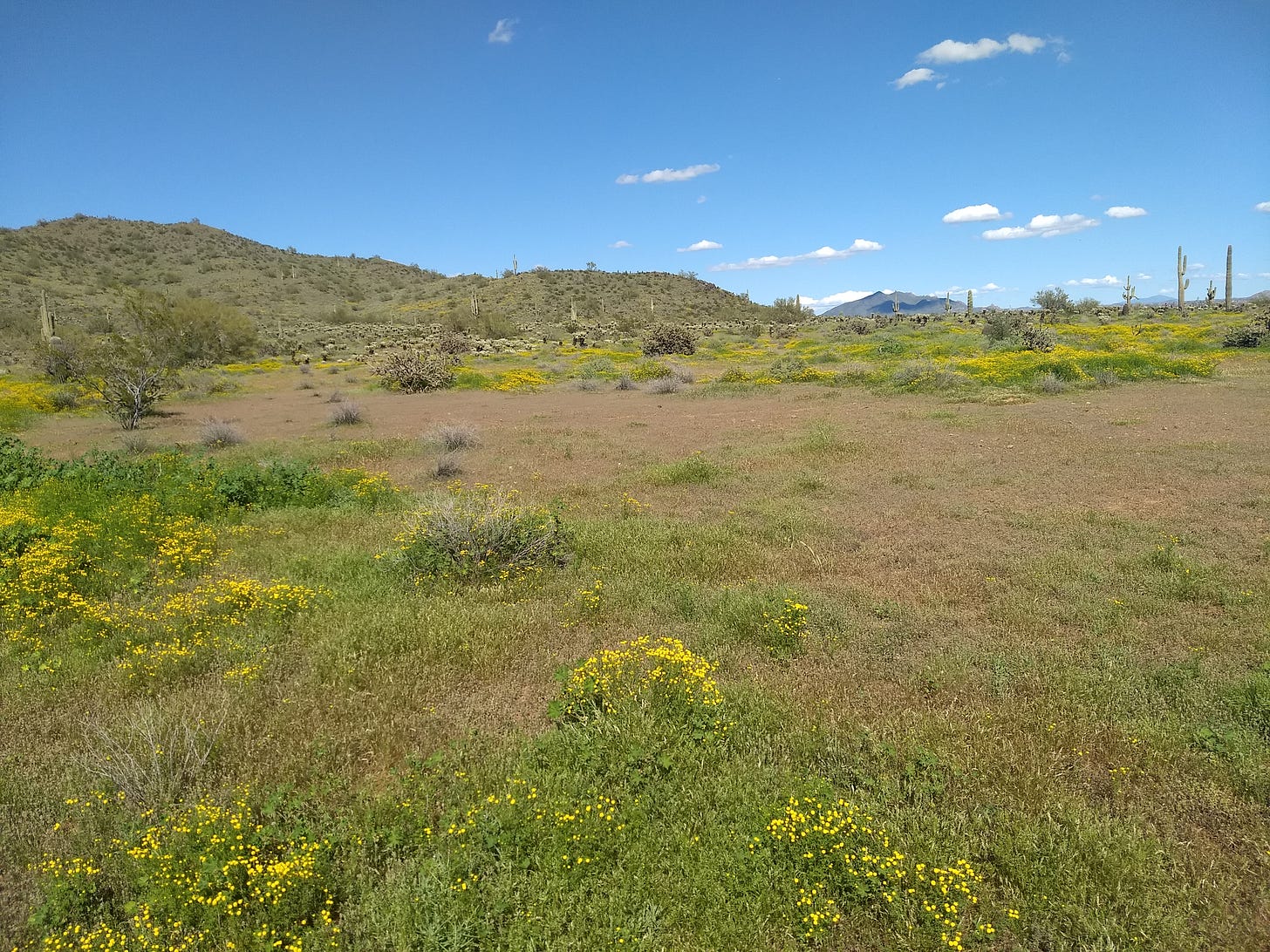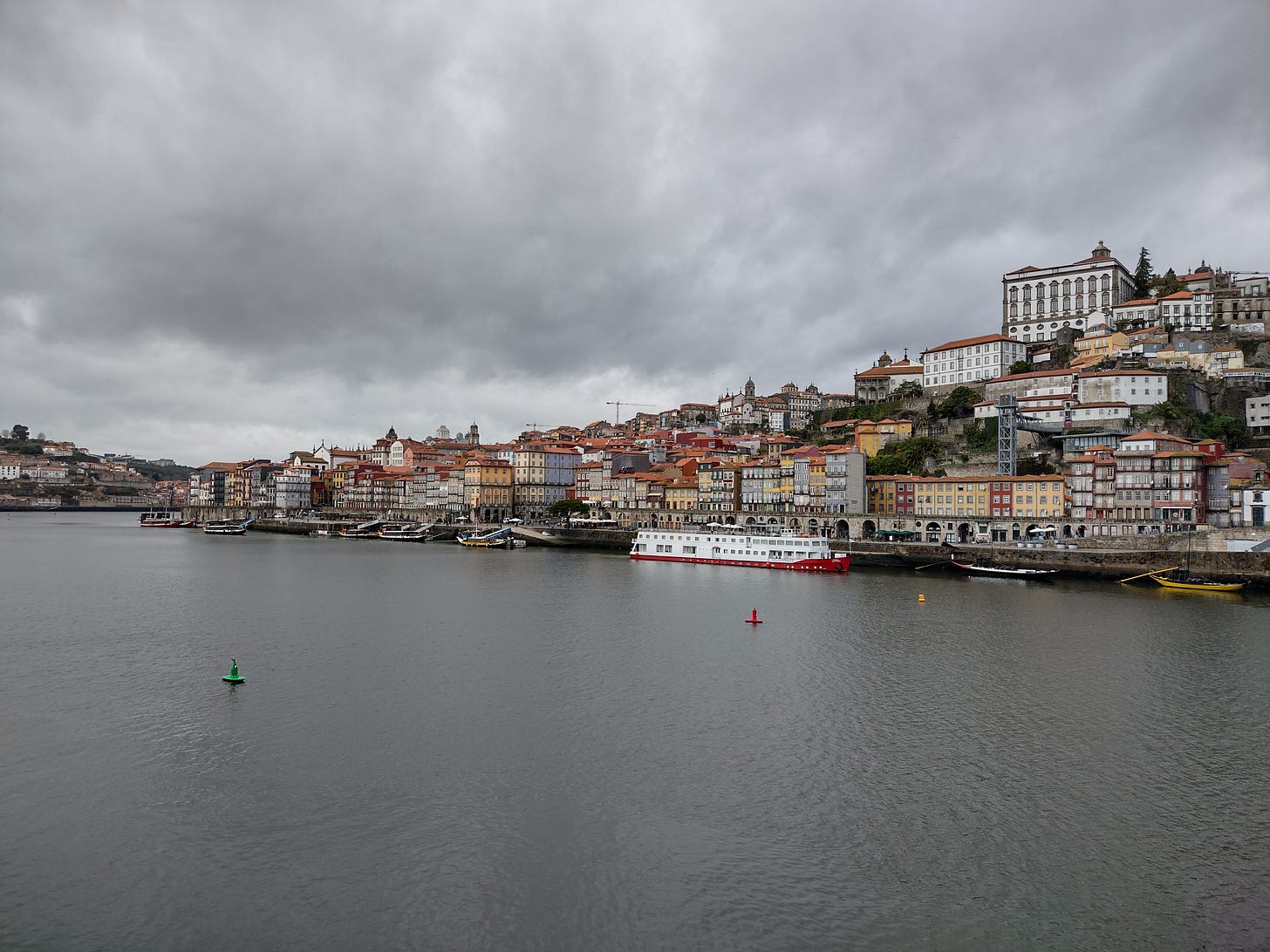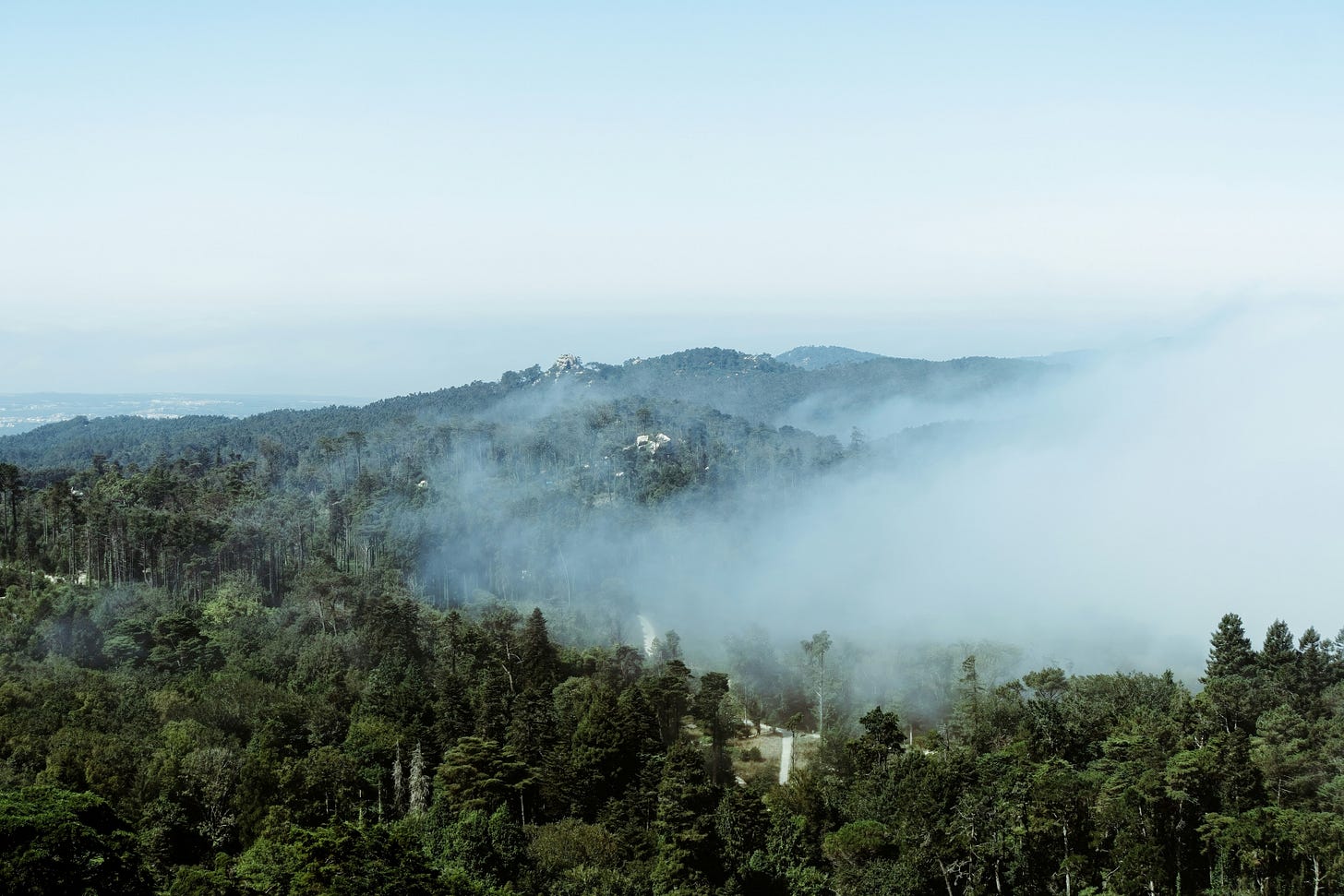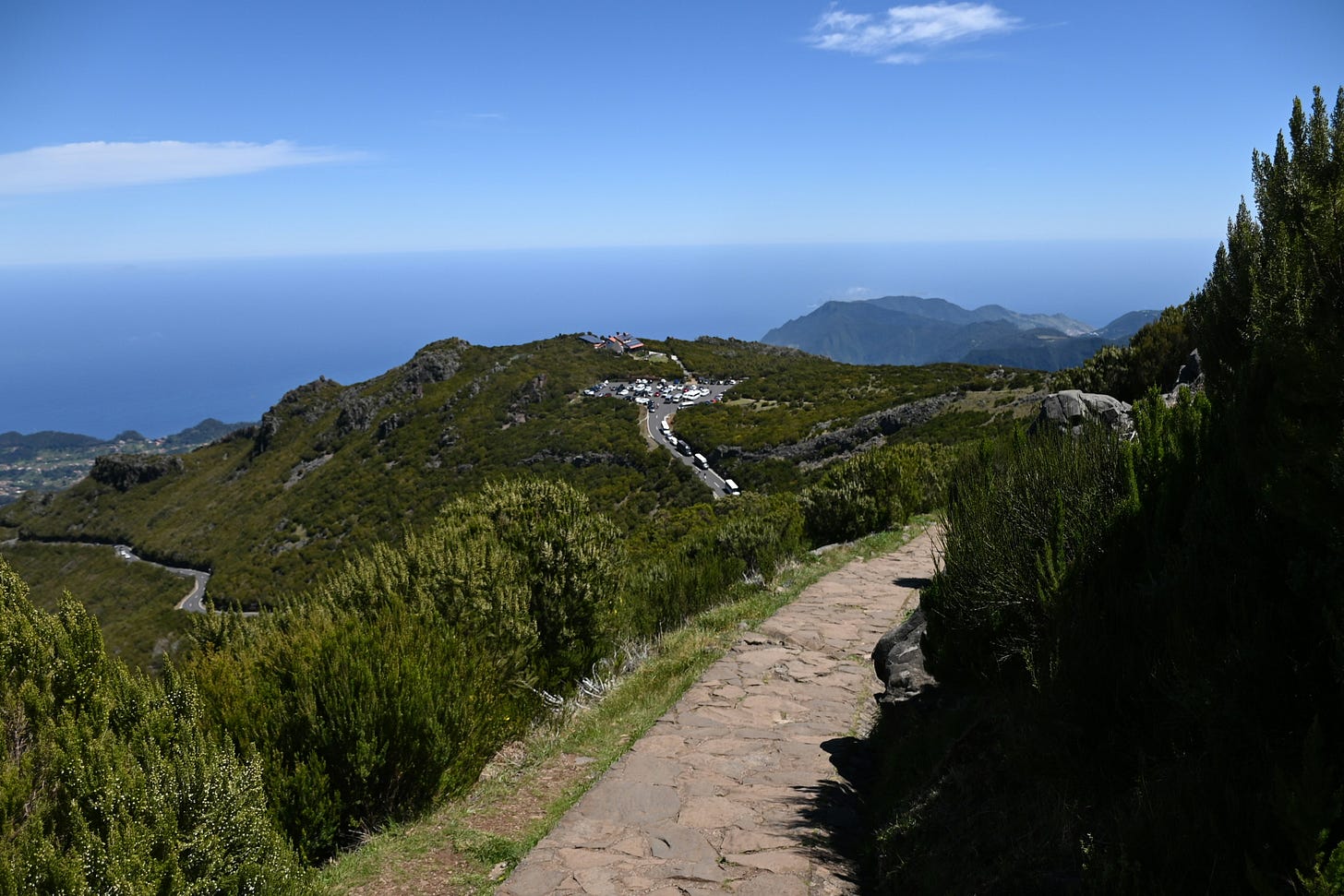The Weather Regions of Portugal
Where to live if you have climate-related health problems.

Portugal is located on the Iberian Peninsula in southwestern Europe and boasts a rich tapestry of climatic conditions. Its weather is shaped by a combination of geographical features, including the Atlantic Ocean, mountain ranges, and proximity to the Mediterranean. This diversity results in distinct weather regions, each with unique characteristics that influence the lifestyle, agriculture, and tourism of the area. It can also influence where you might want to live in Portugal if you have climate-related health problems.
A new subscriber to Our Portugal Journey recently contacted me to ask what I thought would be the best region of Portugal to live in if someone has health issues. This subscriber was especially interested in living in a region with an abundance of sunshine and not a lot of rain. Since many of my posts are inspired by subscriber questions, I thought this would make an interesting article.
From New England to Arizona.

In 2003, Paul and I moved from the east coast of the United States to Arizona. We were not moving to Arizona for health reasons – we were simply looking for something different – both weather-wise and opportunity-wise and Arizona ticked off most of the boxes for us. We were, frankly, tired of cold winters, snow, humidity (and frizzy hair), hurricanes, and cloudy days. Living in the Phoenix area of Arizona meant we would enjoy an abundance of sunshine, low to no humidity, hair that behaved, and just a few rainy days apart from occasional Monsoon rains in the summer months.
As someone who had experienced respiratory and sinus infections in New England, the dry Arizona climate also appealed to me and for many years I remained relatively symptom-free of any significant breathing or sinus issues. But, over time, as the Arizona summers became hotter (up to 118 degrees Fahrenheit or 47.7 degrees Celsius), and the air quality became worse with dust storms, traveling smoke from wildfires, excessive construction, and smog, I began to experience more allergy-like symptoms as well as a dry cough. All were manageable if we had wanted to stay in Arizona, but both Paul and I were craving life along the coastline again and wanted to live near an ocean – be it in the United States or elsewhere.
When considering living in Portugal, we never gave any thought to the climate that would best suit our health. But we did know that at least to begin with, we did not want to live anywhere inland, and we did not want to live where it was extremely hot, dry, or very humid. We were hoping to enjoy some rain (since Arizona had so little of it), but we also wanted to live somewhere with enough sunshine to make us happy. We settled along the coastline in the Lisbon area. Was that choice the best one for my breathing issues? Perhaps not due to dampness and humidity from the ocean. But for me, the positives far outweigh the negatives, and there are ways to comfortably manage my health.
So where to live in Portugal if you have health problems? (Or if you’re just curious about the weather in this country).

I do not have a definitive answer to that because everyone is different with unique needs, weather preferences, and health issues. But I can provide you with a high-level overview of the diverse weather regions in Portugal to help you decide what region might work for you. Here goes…
Northern Portugal

Northern Portugal is characterized by a temperate maritime climate, heavily influenced by the Atlantic Ocean. This region experiences cool, rainy winters and mild summers. The Minho and Douro Litoral regions, known for their lush green landscapes, receive the highest annual rainfall in Portugal. The presence of the Serra do Gerês mountain range contributes to the area's high precipitation levels.
Key Features of this Region:
Average Rainfall: High annual rainfall, especially in autumn and winter.
Average Temperatures: Mild winters (10-15°C/50-59°F) and cool summers (20-25°C/68-77F°).
Agriculture: Ideal for vineyards, particularly in the Douro Valley, and the cultivation of crops like maize and potatoes.
Central Portugal
Central Portugal experiences a Mediterranean climate, with hot, dry summers and cool, wet winters. The region is home to several mountain ranges, such as the Serra da Estrela, which influence local weather patterns. Higher altitudes in this area can lead to significant temperature variations and occasional snowfall during winter months.
Key Features of this Region:
Average Rainfall: Moderate, with wet winters and dry summers.
Average Temperatures: Hot summers (25-35°C/77-95°F) and cool winters (5-10°C/41-50°F).
Agriculture: Suitable for olive groves, vineyards, and cereal crops.
Lisbon and the Tagus Valley

The Lisbon region and the Tagus Valley (or Vale do Tejo) benefit from a mild Mediterranean climate. The proximity to the Atlantic Ocean provides moderate temperatures, resulting in mild winters and warm summers. Lisbon, the capital city, enjoys abundant sunshine throughout the year, making it a popular destination for tourists and residents.
Key Features of this Region:
Average Rainfall: Moderate, with more rain in autumn and winter.
Average Temperatures: Mild winters (10-15°C/50-59°F) and warm summers (25-30°C/77-86°F).
Tourism: Ideal for year-round outdoor activities and beach tourism.
Note: The region of Sintra has its own microclimate with an abundance of fog and rain.

Alentejo
The Alentejo region, covering a vast area of southern Portugal, has a hot-summer Mediterranean climate. This region experiences some of the highest temperatures in the country, particularly during the summer months and is considered to be the most arid region in Portugal. Alentejo’s climate is characterized by hot, dry summers and mild, wet winters.
Key Features of this Region:
Average Rainfall: Low, with most precipitation occurring in winter.
Average Temperatures: Extremely hot summers (30-40°C/86-104°F) and mild winters (10-15°C/50-59°F).
Agriculture: Known for extensive cork oak plantations, olive groves, vineyards, and wheat fields.
Algarve

The Algarve, located in the southernmost part of Portugal, enjoys a Mediterranean climate with a strong maritime influence. This region is famous for its long, sunny summers and mild winters, making it a top tourist and expat destination. The Algarve's coastal areas benefit from cooling sea breezes, which keep summer temperatures moderate.
Key Features of this Region:
Average Rainfall: Low, with most rainfall in winter.
Average Temperatures: Warm to hot summers (25-35°C/77-95°F) and mild winters (10-15°C/50-59°F).
Tourism: Popular for beach holidays, golf, and water sports.
Madeira and the Azores
Portugal's archipelagos, Madeira, and the Azores, are located in the Atlantic Ocean and exhibit unique climatic conditions due to their geographical isolation. Madeira has a subtropical climate, with mild temperatures year-round and high humidity. The Azores experience a temperate maritime climate, characterized by mild temperatures and high rainfall.
Key Features of Madeira:
Average Rainfall: Evenly distributed throughout the year.
Average Temperature: Mild and stable (16-25°C/60-77°F).
Tourism: Known for lush landscapes, hiking, and wine production.
Key Features of the Azores:
Average Rainfall: High, with frequent rain showers.
Average Temperature: Mild year-round (14-24°C/57-75°).
Tourism: Popular for nature tourism, including whale watching and hiking.
Other things to consider:
Climate change is also in Portugal and weather patterns and temperatures can and do change from year to year.
Keep in mind that many apartments and homes throughout Portugal do not have central heat or central air conditioning. So, if you have health issues that might be affected by this, consider this when looking for a place to live.
Saharan dust storms have become more frequent over the last few years and especially for folks with respiratory problems, the advice is to stay indoors.
There is a higher risk of wildfires in some regions of Portugal, especially in rural areas. This resource provides more information.
In recent years, the Alentejo and Algarve regions have experienced drought conditions due to climate change.
If you’re thinking about moving to Portugal and are unsure if you’ll adapt to the climate, consider first visiting the areas you’re most interested in during the winter and summer months to see if Portugal is right for you.
Thank you for reading Our Portugal Journey. This blog is a subscriber supported publication but has no paywall – in other words, you can subscribe for free and receive all the content. However, if you find my content valuable, please consider becoming a Supporting Subscriber for a nominal fee either on a monthly or annual basis right here. Just want to buy me a glass of wine? You can do that here.
A special thank you to Anonymous for supporting my work through Buy me a Coffee and to Masakiah for becoming a Supporting Subscriber. I truly appreciate it!
Until next time…
Obrigada!
Carol.




Great synopsis, thank you!. On a recent trip through northern PT (Bragança) and on into Spain I found it interesting how dry that area is, having "assumed" all of northern PT was like Gerês. Indeed a wine expert from Chaves told me that the Trás-Os-Montes area, from Chaves and east to the border, has its own climate and viniculture for their wines. And of course the Alto-Alentejo is quite different from the vast rolling plains of the Alentejo. Fascinating differences in geography, geology and climate in such a compact country!
I was so excited to see this topic! It is asked so frequently. Many newcomers find that their diet and exercise reduce their dependencies on medications for high blood pressure and cholesterol, but the weather itself brings new allergies and respiratory issues. Thanks so much and great photos from Paul.